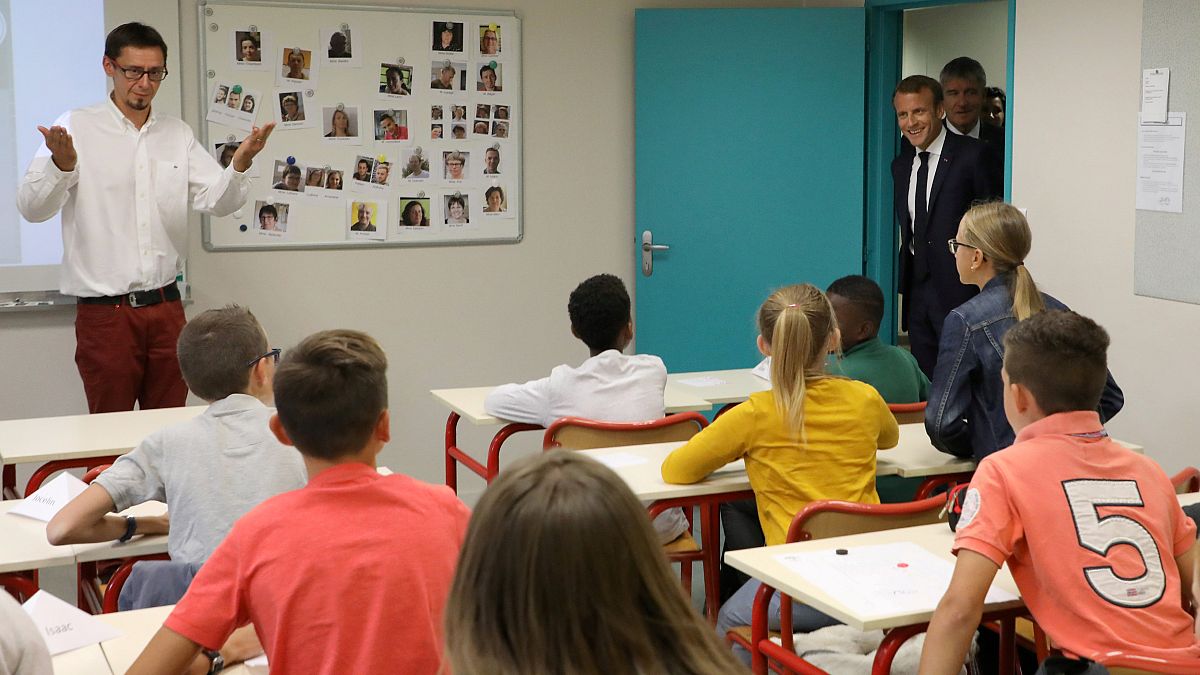Are French schools failing their brightest children?
France's education system has been long criticised by psychologists, teachers, parents, and others.
A specific kind of child is being let down by the system, ones with "high potential" or "precocious" children, however you want to define them. These children have an IQ of 130 or more are out of step with their peers. They learn faster and tend to be hypersensitive.
Only 2.5% of the population in France has demonstrated this 'high potential' and 70% of them have avoided struggling at school, while the rest experienced many difficulties.
The situation has raised questions that neuroscientists, psychologists, and teachers have been trying to answer to ensure these children thrive in a society that not only has a hard time recognising them, but will not adapt their education system to meet their needs.
"Children with high potential assimilate everything very quickly and disengage just as quickly, which can come across as restlessness or anxiety and it can even lead to school phobia," says Anne-Laure Kerimian, a former teacher who worked at graduate school Lycée Branly in Lyon.
"They have a hard time selecting relevant information among from an influx of detail. To regain control of their mind, which they often don’t understand, they can develop compulsive obsessional disorders which leads to generalised anxiety."
'The education system is sick from the inside'
"France has an ideological problem. The system doesn’t want to accept these children who need specific recognition and support. The education system is sick from the inside," explains Fabrice Bak, an applied cognitive psychologist specialising in learning disorders.
He adds that teachers are not being trained to handle high potential students.
Valerie, a teacher and mother of a high potential child, says one major problem is that there are often too many students to manage per class.
"Everyone deserves an education adapted to their needs, even those who have difficulties. The system should be more open." she continues.
Jean-Francois Laurent, a specialist in intellectual precocity and school mediation, strongly agrees, emphasising that these children require a specialist education.
"These children need to be challenged, recognised, and motivated to learn. They need to be emotionally acknowledged, not only by the school, but by their family as well," he says.
As a former teacher and principal, Laurent has been trying to improve the system by encouraging schools to change.
"We need to put an end to the competitive system, encourage cooperation, and give way emotional expression and the development of multiple intelligences," he says.
"In the school I used to work at, we stopped giving out grades and punishment. Out of 200 children, 60 of them had a high potential."
'If we don’t make changes, society will fail'
In a study conducted by Bruce McEwen, an American neuroendocrinologist, it was found that stress influenced the destruction of neurons in a child's brain in the first years of their life, blocking the release of dopamine — a neurotransmitter that regulates motor function.
Thus, the environment high potential children live in would play a significant role in helping the brain fully develop itself.
Bak mentions a new movement called "neuroeducation" that aims to put an end to the lack of understanding and compassion in the French education system.
"If we don’t make changes, society will fail. The pedagogic system is the backbone of a society: if one is dysfunctional, the other will be too," he says.
Many books concerning this field have been written, such as Laurent's "APIE" (Atypical Person in Intelligence and Emotion) series.
"The main idea is that these children are fragile, they need support and to receive specific treatment. This is where the positive pedagogy comes from," says Laurent. "They are filled with passion, and once they start doing something that interests them, they could go a long way. Walking around with a label on their forehead is not the idea, nor the solution."
Bak and Laurent have been working on this study together and both agree that there is a need to raise awareness, dig deeper in neuroscience studies and give support to these children if they should have any hope of reaching their full potential.
